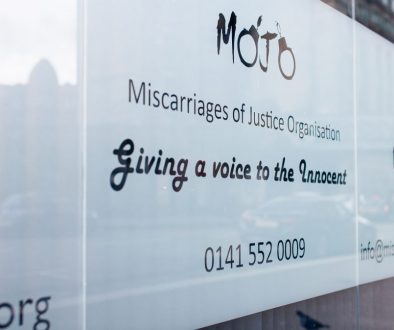Abolition of juries back on the table
Having been forced, just last month, to withdraw its remarkable proposal to abolish juries in solemn trials, the Scottish Government has now resurrected the idea in new proposals for the administration of justice during the coronavirus crisis.
In a discussion document published on Tuesday (14 April), nine options are identified as potential solutions to the difficulties caused by the public health emergency. In respect of seven of these, the document expresses either no view, or doubt as to their suitability and/or practicability. Of the two remaining options, which the document goes to significant lengths to justify, one is the abolition of juries in solemn trials. Curiously, given its detailed endorsement of the proposal, the document suggests that this is “not considered to be the preferred option of the Scottish Government”. The other remaining option, which presumably is the preferred option, is a proposal to significantly increase the sentencing powers of sheriffs sitting without a jury. Which amounts, broadly, to the same thing.
So, what’s the problem with abolishing juries? To read the discussion paper, you would be forgiven for thinking that it’s no big thing. To read some of the commentators in the press and on social media you would, again, be forgiven for thinking that it’s no big thing. But it is. It really is. The justification for trial by jury isn’t simply that we’ve had this for 600 years – although you might see that as illustrative of a system whose value has been tried and tested and that has served us, in the main, well. It is that juries are a fundamental, and essential, foundation of our contract, as individuals, with the state. It is a cornerstone of our democracy that we are subject to the rule of law by our consent. We empower the state to prosecute, and imprison, on the understanding that we will be judged, at least in the most serious crimes with the most serious penalties, by the people. Not by the state. Where a judge – who, like the prosecutor, is an employed officer of the state – is the arbiter of guilt or innocence then that essential distinction is lost. It is, in fact, reversed. To this observer, it just doesn’t get any more fundamental than that. What is being proposed here is an attack on our democracy. It is the appropriation of unfettered power, by stealth.
Juries aren’t perfect. Nothing devised and administered by humans is, or can be. But they’re better than the alternative. Juries are an inconvenience to governments for whom conviction rates are electoral capital. Without juries, governments are more powerful, because they control the entire justice process. Without juries, citizens are less free.
And history suggests that when freedoms and protections are withdrawn, they can be very difficult to recover. Consider the example of France. Juries were established there during the revolution, in 1790, and retained under the Napoleonic Code of 1804, on which French law continues to be based. It took the arrival of the Wehrmacht to see them abolished, in 1941. The Republic was, of course, restored, at the end of hostilities. The juries never were. The point? Even democratic governments can’t be trusted with our basic rights and freedoms.
The Scottish Government announcement can be found HERE.
The discussion paper can be found HERE.



